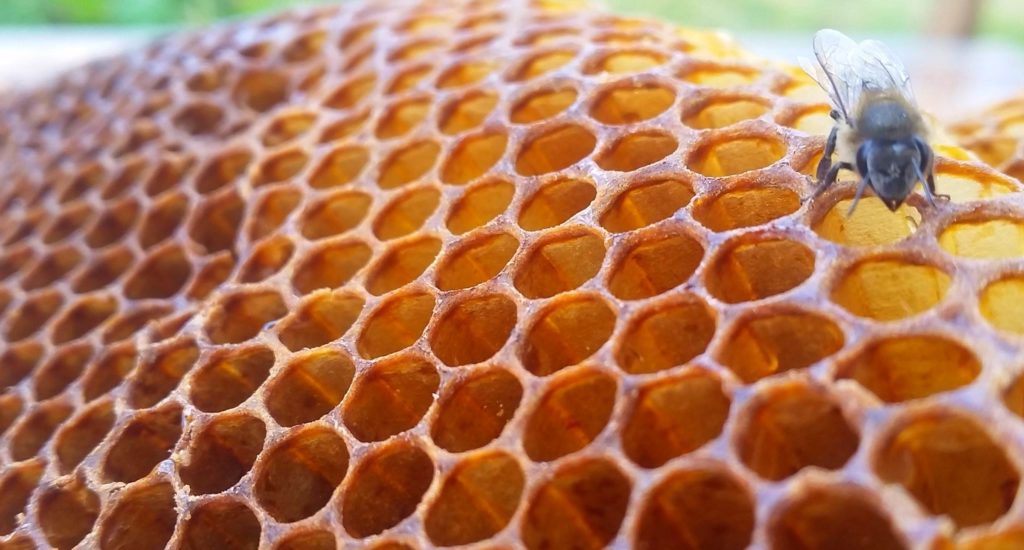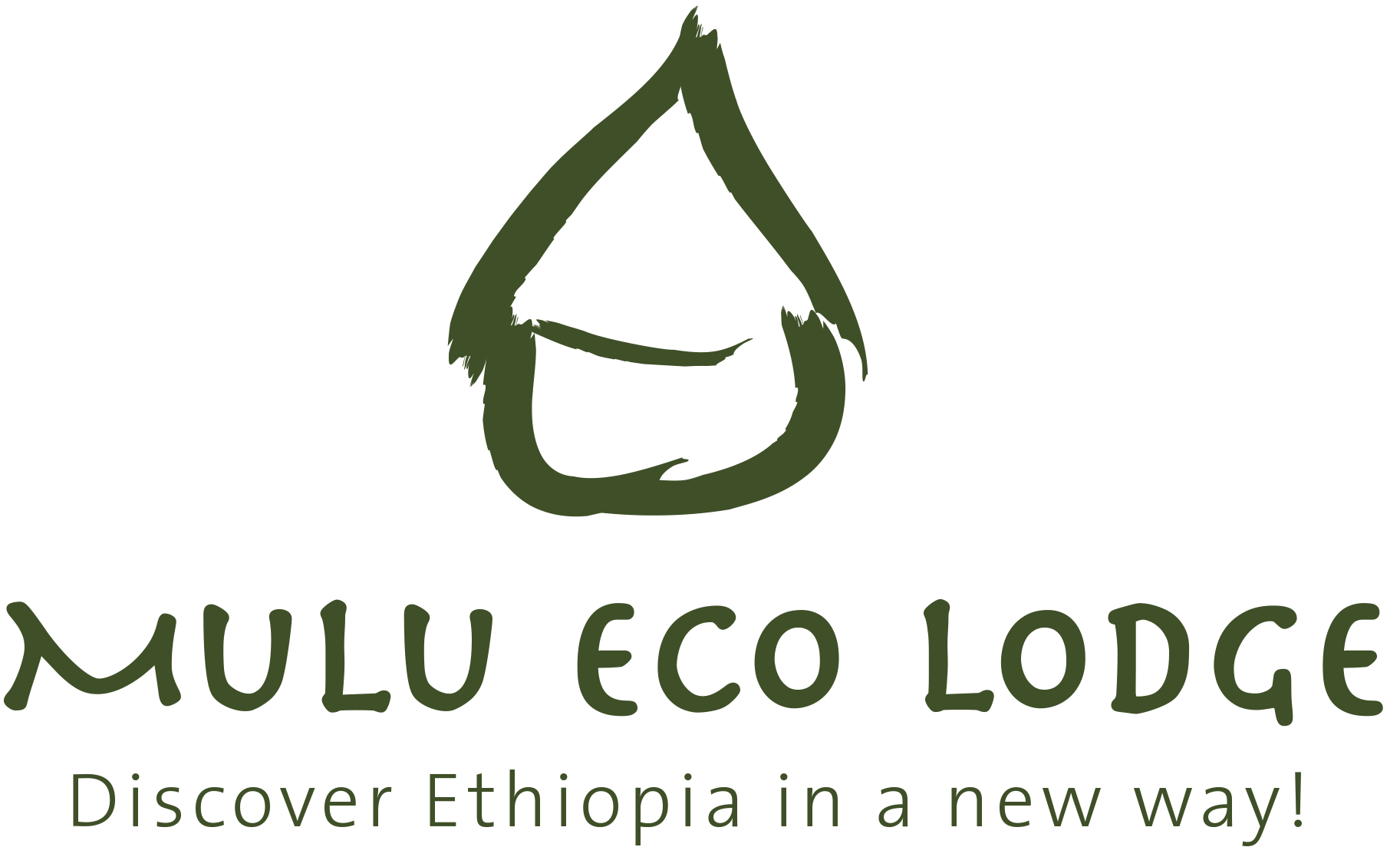About Mulu
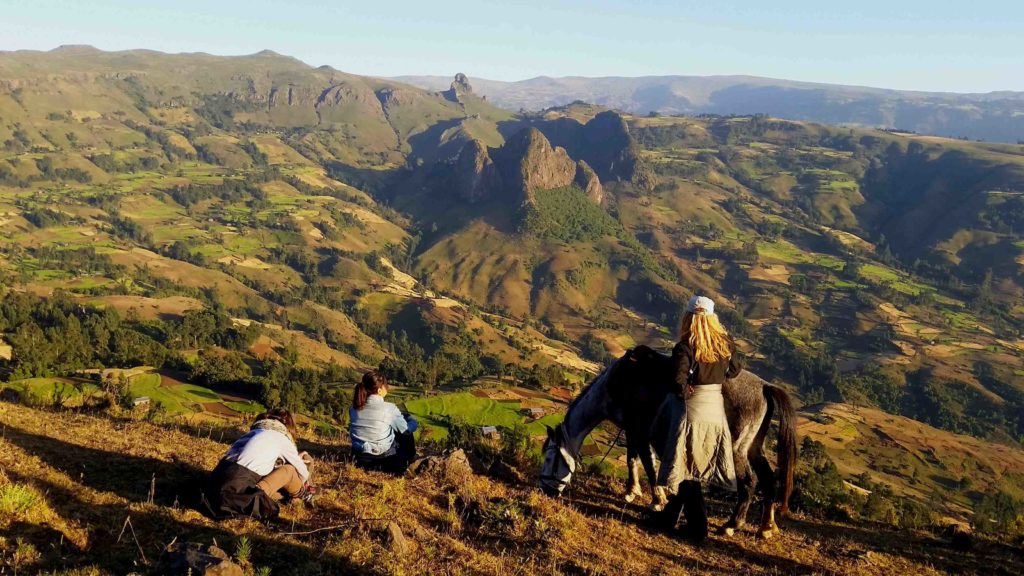
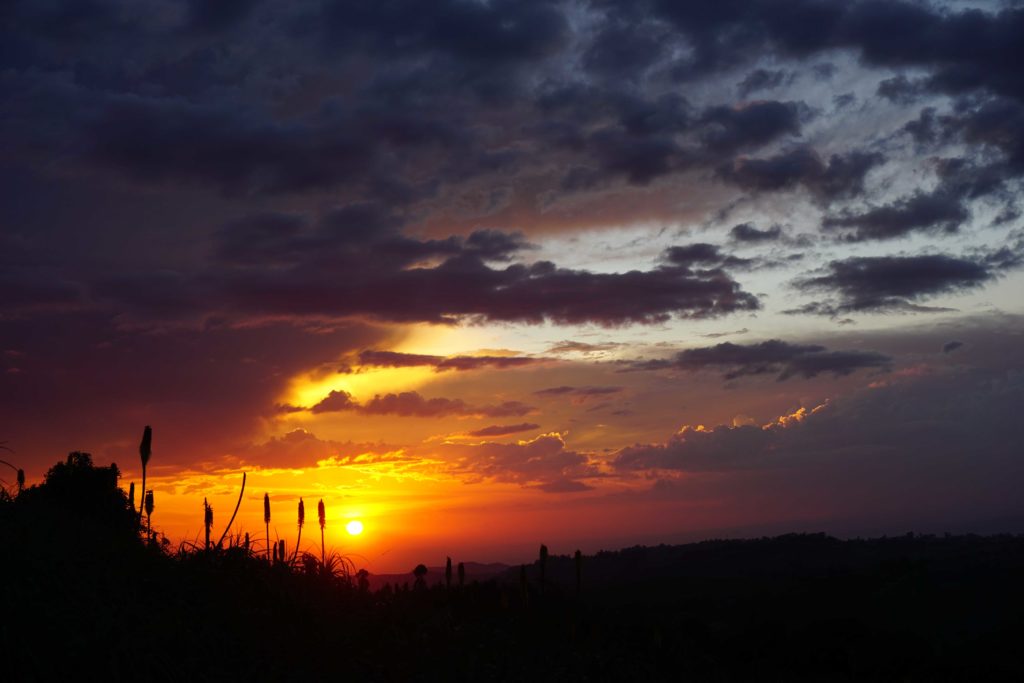
1. Slow travel
Imagine living for a week in a little Ethiopian cottage in the green highlands above 3000 m a.s.l.
You will buy fresh vegetables from the farmer’s market every saturday. Sip coffee made in a coffee ceremony by your new local friend, and take leisurely day trips to neighboring villages and nature highlights, like waterfalls or mountain views and wild animals.
Sounds appealing? That’s the magic of slow travel, where the emphasis is less on manic sightseeing and more on taking in your surroundings at a relaxed place. This is no “four cities in seven days” tour — instead, you’ll see new places and explore new cultures in a way that’s less stressful for you, more respectful of the locals and easier on the environment. (The Art of Slow Travel)
At Mulu Eco Lodge we follow these principles. Therefore in the Mulu Eco Lodge a minimum stay of 3 nights is required. That is not only to guarantee an authentic once in a lifetime experience with local people for the guests but also to protect the locals and their traditions from mass tourism.
From the 4. night onwards you will get a 50% discount on the basic fee of the accomodation to enable everybody to stay longer.
2. Location - Choke Mountains
Mount Choke is the third highest mountain in Ethiopia!
Rising to an elevation of 4,070m around 40km northeast of Debre Markos, this ancient volcanic massif, also known as Choke Terara.
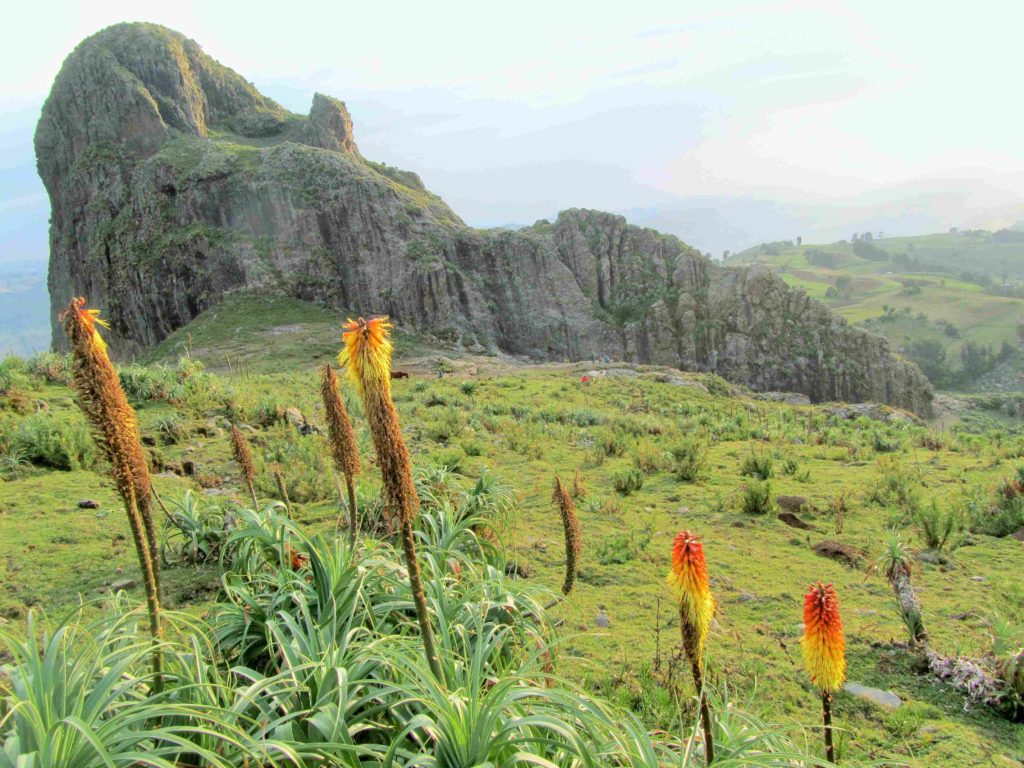
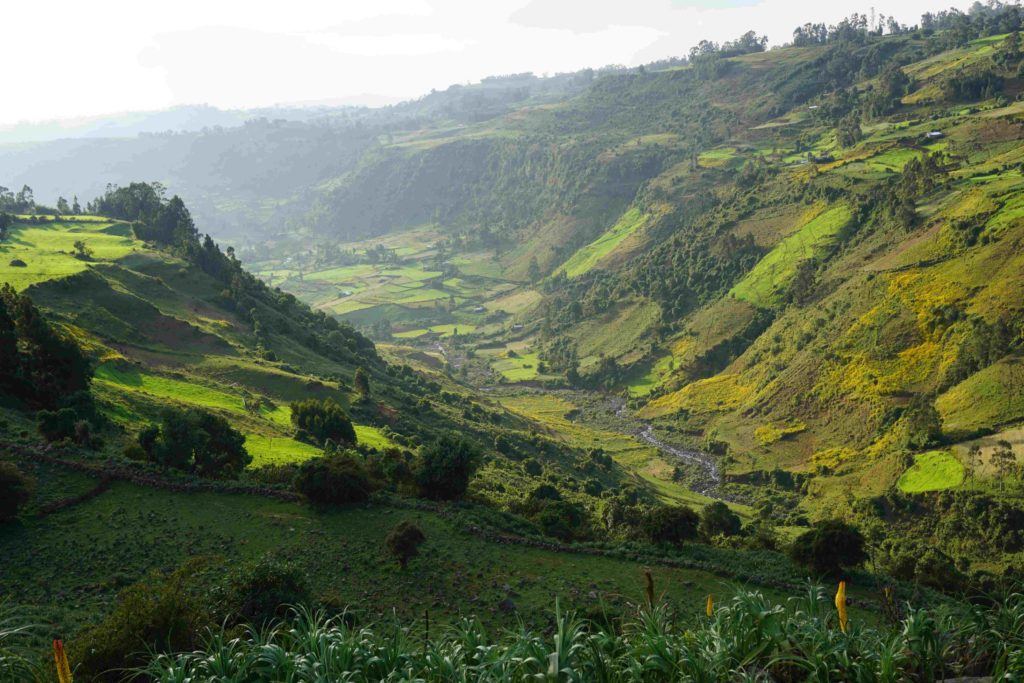
It is incised by steep riverine valleys that held glaciers during the last ice age.
An important watershed feeding the Nile Basin, Choke is cultivated up to the 3,300m contour, while higher altitudes support an indigenous cover of grassland and moorland studded with giant lobelias and home to several highland endemics.
Lot of tourists travel the historic north route trough Ethiopia that bypasses these mountains. Still it is a totally undiscovered and untouched area that so far has not seen any tourism, organisations or other institutions.
By building the Mulu Eco Lodge we want to bring sustainable Eco Tourism to the mountains and create jobs for the locals in this rural area.
In late 2017, it was announced a part of the mountains will soon be recognised as the Choke Biosphere Reserve, focussed on the Aba Jimme Forest.
To get to Mulu Eco Lodge, follow the Bahir Dar road north of Addis Abeba for about 380 km until Dembecha, then turn right onto the unsurfaced Feres Bet Road and continue northeast for another 35km.
The lodge stands in a substantial patch of indigenous forest that supports guereza monkey, Menelik’s bushbuck and common duiker as well a variety of endemic birds. It is close to a mountain river that forms many waterfalls.
The forest is surrounded by the fields and houses of the farmer families.
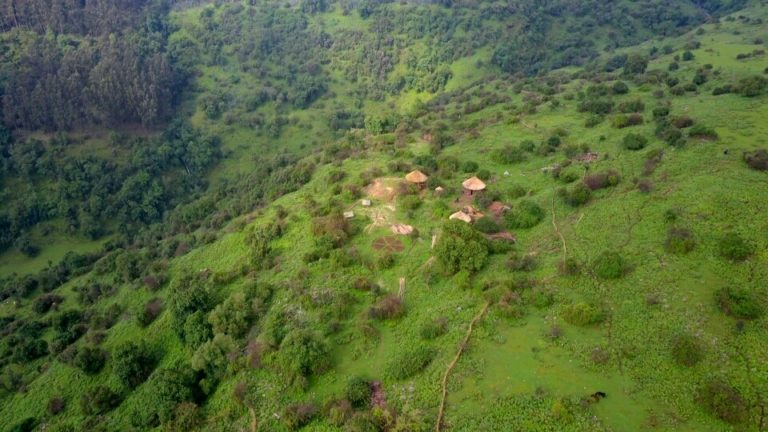
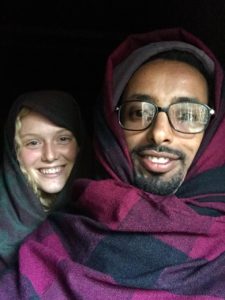
3. The Founders
I, Valerie, was volunteering in Ethiopia in a gap year after high school graduation. I fell in love with the country and its people and now I am living in the Choke Mountains in Ethiopia while doing a distance study of energy engineering in Germany, my origin.
In Ethiopia I got to know my partner, Abiy, an Ethiopian, grown up as a farmers son in the mountains of our current project area. As a child he moved to the capital, later studied Ecotourism and always dreamed about going back to his roots and helping the people there.
We moved to the mountains to start the project in July 2017 and opened the Mulu Eco Lodge in 2018.
We brought the idea to the community but main pillar of the project are the farmers themselves! About 200 farmers and their families are involved and benefiting from the Mulu Eco Lodge.
4. Eco Lodge - Eco Food
When you visit the Mulu Eco Lodge you will live closely together with the locals and also eat like the locals.
As all over the country Injera, a flat sour-dough bred made of the gluten-free Teff grain, is the most popular food and served as a basic for every meal. The Choke Mountains are known for their tasty potatoes. Also other veggies – all 100% organic and locally grown – are available on the local market.
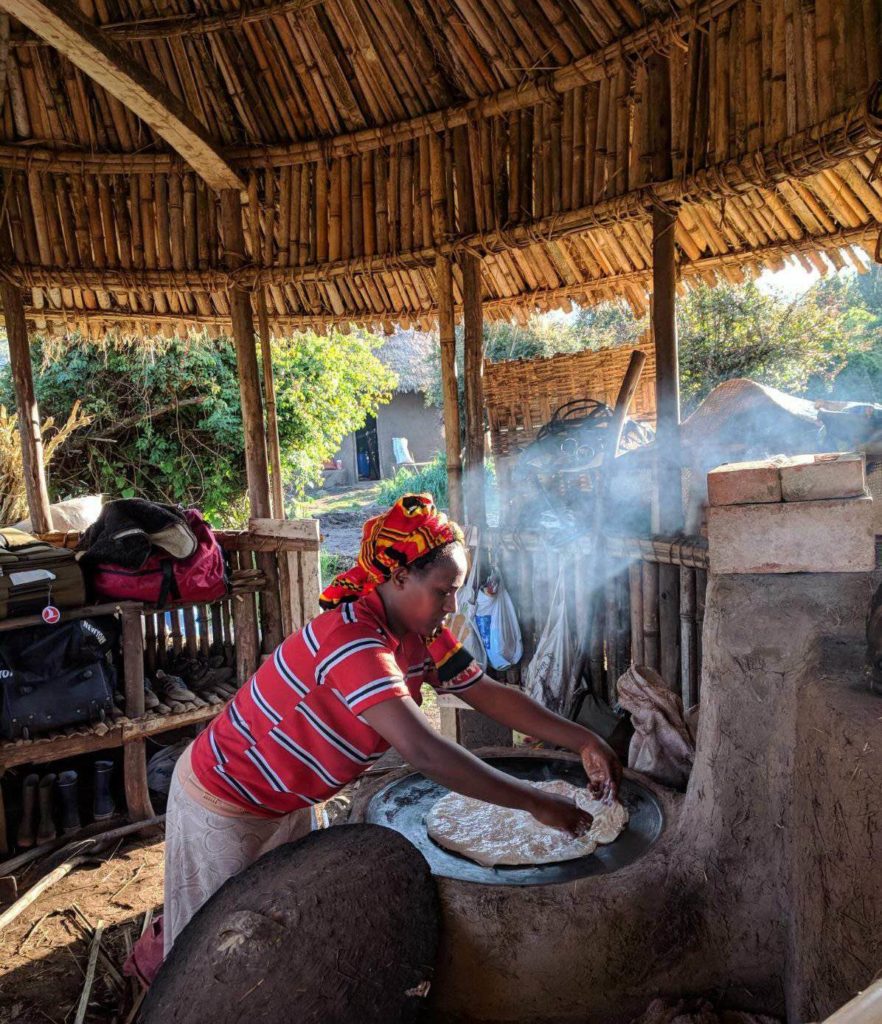
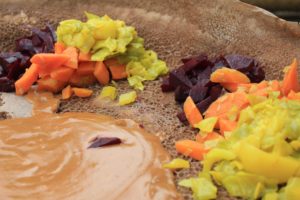
In the Choke Mountains people are deeply spiritual Christians. A few years ago it was a sin to sell food here – if anybody is in need of food, you had to give it for free!
Now, foods are sold on the weekly markets but still the closest restaurant or cafe is in the town of Feres Bet ( about 17 km away). There are public transport services a few times a day to Feres Bet which take about 45 min.
Therefore we offer full board accomodation. You may also get the chance to be invited to a farmers house.
The Mulu Eco Lodge supports the surrounding farmers by buying food directly from them and follows their rythm of eating meat only on special yearly holidays when the farmers slaugther an animal.
Most of the time the diet are very diverse vegetarian meals – on request international but usually traditional ethiopian style.
The locals love cooking together with you in our open community kitchen, both sides learing about different cuisine.
Breakfast with hot drinks is included in the accomodation fee (except if you stay in tents). The additional Full Board Fee includes lunch, coffee ceremony and dinner. Fresh filtered spring water in always available. Alcoholic beverages and other drinks can be bought additionally in the Lodge.
5. Gojo Bet - traditional houses
Bet, amharic: house, home
Gojo, amharic: traditional round house from mud and clay with straw roof
All our houses look different, have different characteristics and different sizes.
All are built and designed by our local community with materials grown and supplied by them (no cement etc.): bamboo, soil, gras, straw, woods, stone.
The walls are painted with a homemade natural chalk paint (the chalk is collected in the surrounding mountains) that allows a great room climate. The lodges are furnished with home made bamboo furnitures done by the farmers in cooperation with foreign volunteers.
By building the Gojo Bet without any artificial materials the local community gives more value for their ancient building techniques now.
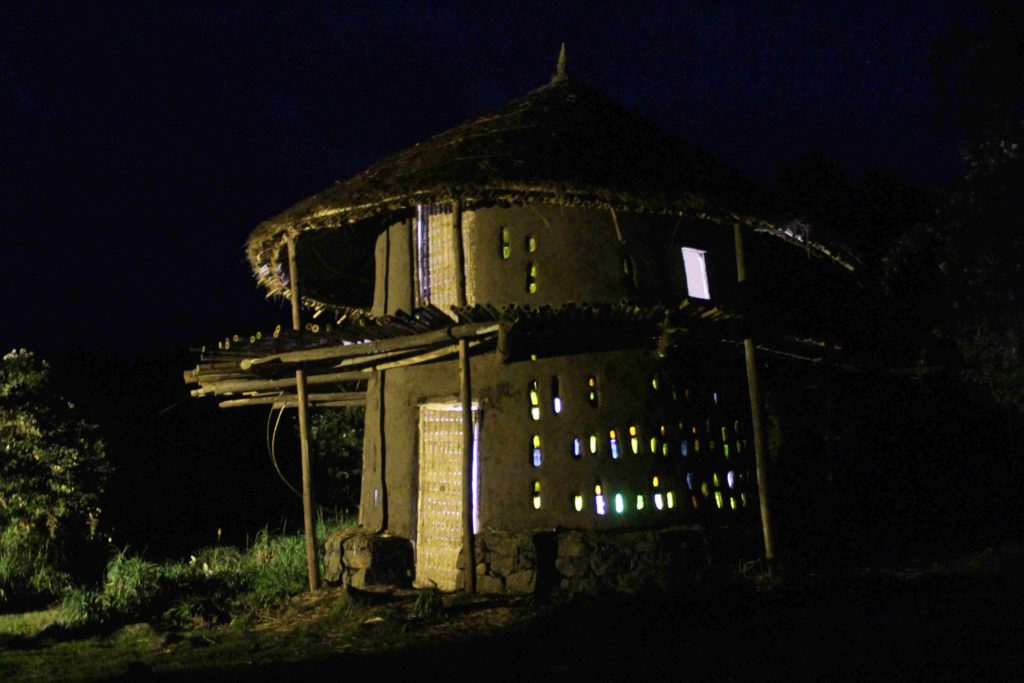
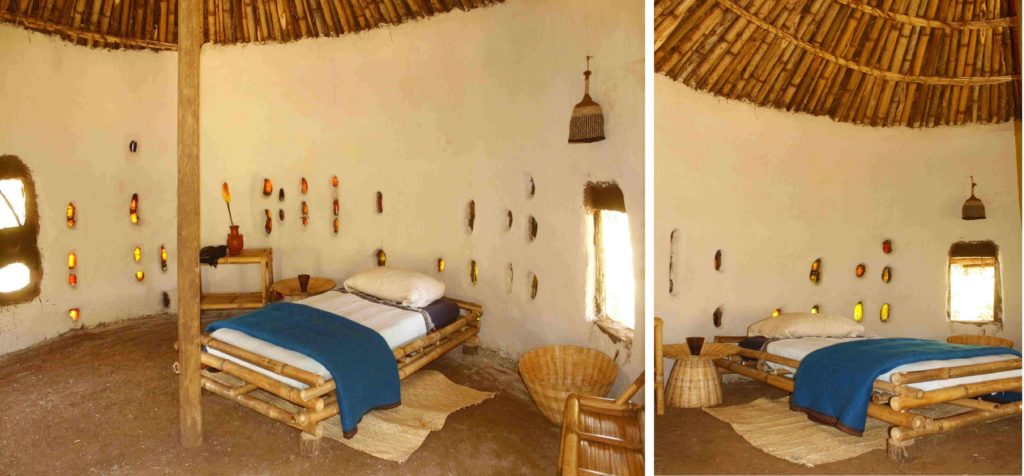
6. How to show respect to the local community
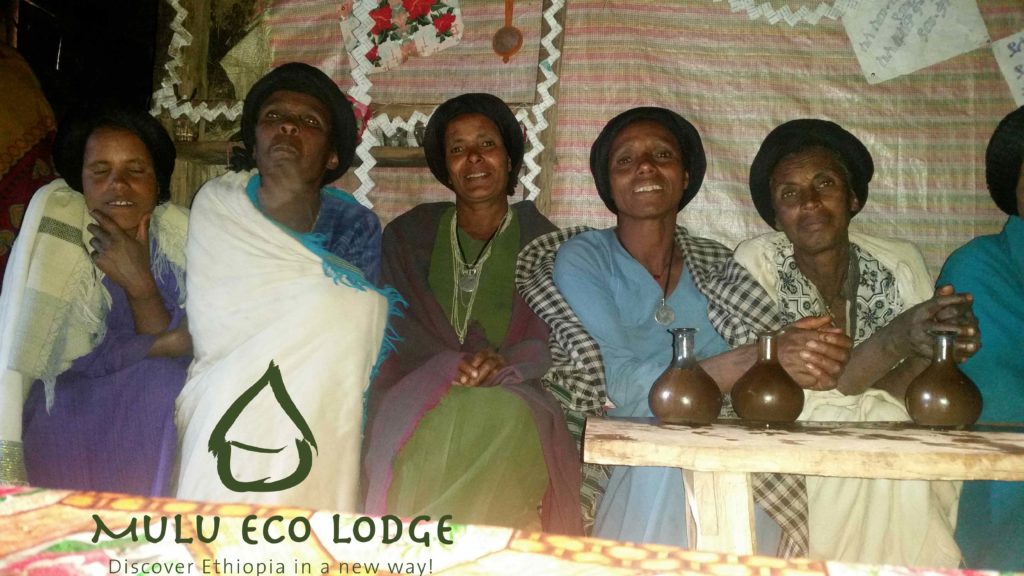
Instead of individual and personal gifts guests have the opportunity to support the community by gifts or donations to our NGO „Enat Ethiopia e.V.“ that help to realize community projects, like a primary school or public grinding mill, or are fairly distributed to the locals by a commitee of eight selected farmers.
If you have free space in your luggage, fill it with donations! You are very welcome to contact us and we will let you know what is needed at the moment.
There is a very strong community feeling between the farmers. An ancient tradition in this area says that every farmer should be part of an association. „Mehaber“ is a group of farmers who meet and celebrate once in a month in a farmers house to build an keep a strong bond. This association also works like an insurance for the members: they take care of each other, collect money for holidays to celebrate all together, help all together if somebody is in need of something, e.g. building a house.
This could be easily affected and spoiled by tourism through individual gifts or „donations“ of foreigners to locals (distributing sweets / pens / clothes to children, etc.) creating jealiousy and distroying the community feeling.
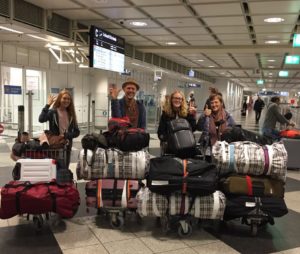
7. Mulu Standards - Sanitary, Electricity, Conditions
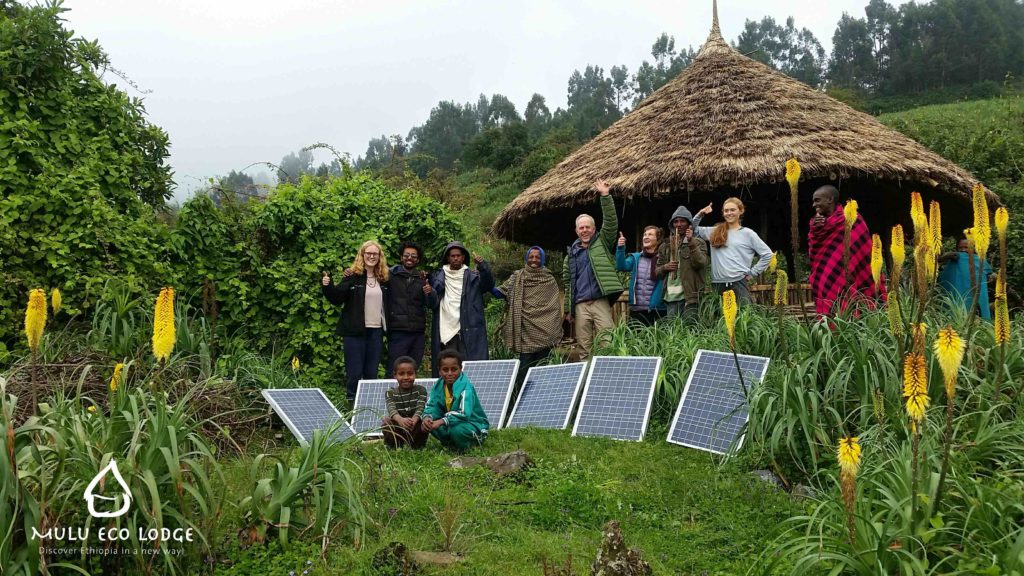
Electricity: As an Eco Lodge we are self sustainable and off-grid. Each room has a little solar home system which provides light and a 12V output for a phone charge. Mulu has one central solar powered charging station with several 230V outputs, also capable of cameras, laptops, etc.
Discounts for families (in the same accomodation): Children up to 12 years for free, 12-18 years 50% . All children pay 50% of the food prices.
Minimum stay is 3 nights.
From the 4. night onwards you will get 50% discount on the basic fee of the accomodation.
Our Gojo Betoch (Betoch, plural of Bet) are named in amharic by endemic local flora and fauna. On the next pages you find discriptions and capacities of each Gojo and individual prices.
Each Gojo has its own compost toilet and washbasin in an additional hut closeby.
There are different open air showers in the nature with full privacy and will be filled with warm water on request.
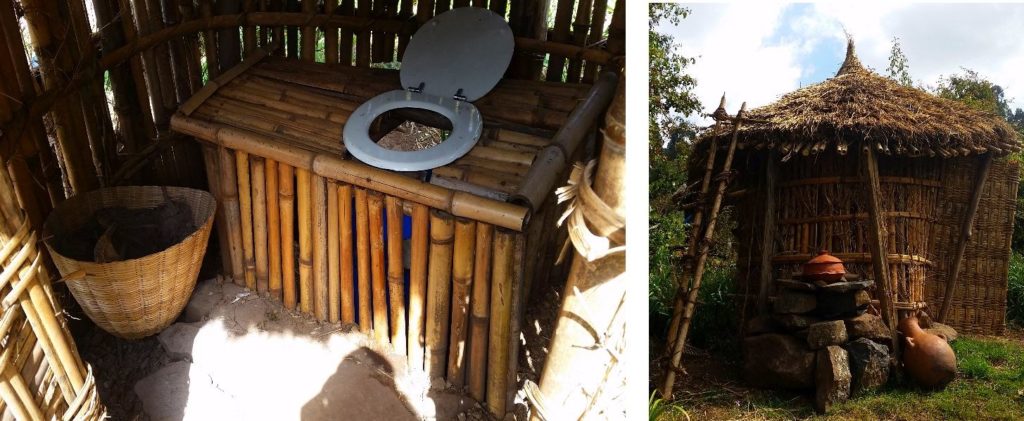
8. How to reach Mulu? Airport transfers and further travels
We work closely together with the tour company Abiy trekking and Eco-Tours so feel free to contact us also for informations about tours all over Ethiopia:
For example, we can organize your transfer to the Lodge from the airport in Addis Abeba by car and driver (about 380km).
You will stay a few days in the Mulu Eco Lodge and then we can organize your further travels to the historic and nature highlights of Ethiopia:
To the source of the Blue Nile in Bahir Dar at the Lake Tana, to the castle of the former kings in Gonder, and the Unesco registered rock-hewn churches of Lalibela.
lalibela_IMG, lalibela2_IMG
„Christians from all over the country do a pilgrimage to Lalibela for christmas on 07. January.“
Let us also know if you want to discover Ethiopia by yourself and by public transport as a backpacker. We can help you with that aswell!
There is a direct local bus from Addis Abeba to the Mulu Eco Lodge.
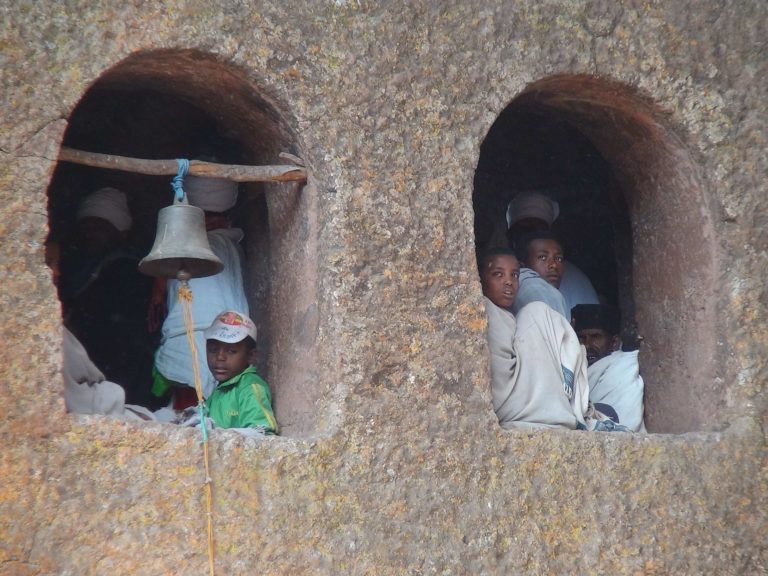
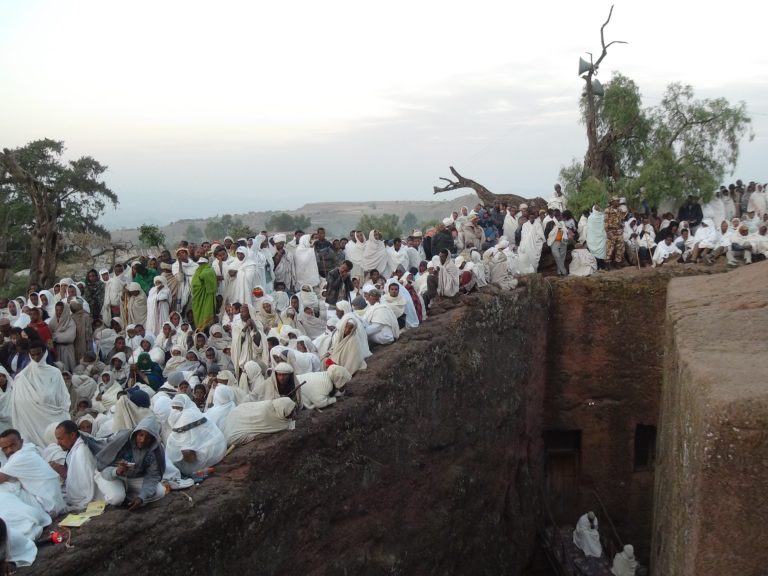
9. Visa, Vaccinations and others...
In this altitude no mosquito can survive. So dont worry, there is no Malaria or any other dangerous insects / wildlife (no snakes, etc.). It does not exist here.
For any other case, there is a quite modern little hospital just 2 km away in the village of „Tiame“.
You do not need any obligatory vaccinations for travelling to Ethiopia.
About insurance: ask your insurance company if you are insured while travelling. There is no travel insurance via our travel agency.
Visa: You can get an On-Arrival-Visa in the airport in Addis Abeba (1-3 month tourist visa) for about 50 – 70 €.
It is also possible to apply for the visa in advance in the Ethiopian Embassy in Frankfurt or online via their web page.
The Mulu Eco Lodge produces its own honey from about 30 bee hives. Our bees are very friendly but if you have a bee allergy please bring your emergency medicine with you.
